Zinc may not always make headlines like vitamin C or calcium, but this trace mineral is an essential player in maintaining good health. It supports immunity, helps wounds heal faster, plays a vital role in cell growth and division, and even affects our senses of taste and smell. While you don’t need large amounts of it, not getting enough can have a noticeable impact on how you feel, both physically and mentally.
In this article, we’ll take a closer look at the role of zinc in the body, common signs of deficiency, how to get it through food, and why it’s often paired with other nutrients in multivitamin formulations. Whether you’re looking to improve immunity, energy, or general well-being, understanding zinc’s role is a great place to start.
Zinc: Why Your Body Needs It
Zinc is involved in more than 300 enzymatic reactions across the body, which gives you an idea of how deeply it’s woven into your biological functions.[ScienceDirect] From helping your immune system defend against viruses to supporting the creation of new cells and DNA, it’s a behind-the-scenes nutrient doing critical work.
Some of zinc’s key functions include:
-
Supporting immune function: Zinc is essential for activating T-cells, which help regulate and direct immune responses.[NIH]
-
Wound healing: Zinc plays a key role in collagen synthesis and tissue repair.[NIH]
-
Cell growth and division: It’s particularly important during times of rapid growth like adolescence, pregnancy, and recovery.[NIH]
-
Skin health: Zinc helps regulate oil glands and has anti-inflammatory properties, making it especially useful for managing acne.[NIH]
-
Sense of taste and smell: Zinc helps maintain sensory receptors in the nose and mouth.[NIH]
And since your body doesn’t store zinc the way it stores fat-soluble vitamins like A, D, E, or K, you need a consistent daily intake.
Signs of Zinc Deficiency
Mild zinc deficiency is more common than many people realize. It often develops gradually and can be overlooked until it begins to noticeably affect how you feel.
Common symptoms of low zinc levels include:
-
Frequent colds, infections, or slow-healing wounds
-
Increased acne or skin inflammation
-
Hair thinning or hair fall
-
Poor appetite or sudden changes in taste
-
Brain fog or difficulty concentrating
-
White spots on fingernails
-
Fatigue and low energy
Certain groups are at higher risk, including vegetarians and vegans (due to lower zinc bioavailability in plant foods), pregnant women, people with gastrointestinal disorders (like IBS or Crohn’s), and older adults whose ability to absorb nutrients may decline over time.
How Much Zinc Do You Need?
The recommended dietary allowance (RDA) for zinc varies by age, gender, and life stage. Here's a general guide:
-
Adult men: 11 mg/day
-
Adult women: 8 mg/day
-
Pregnant women: 11 mg/day
-
Lactating women: 12 mg/day
While these amounts may seem small, consistently falling short, even by a few milligrams, can lead to symptoms over time.
Best Dietary Sources of Zinc
Getting your zinc through whole foods is always a great place to start. Animal-based foods tend to offer zinc in more bioavailable forms, meaning your body can absorb and use it more easily.
Animal-Based Zinc Sources - Oysters, Red meat, Poultry, Eggs, Milk, cheese, and yogurt
Plant-Based Zinc Sources - Pumpkin seeds, sunflower seeds, chickpeas, lentils, black beans, cashews, almonds, peanuts, quinoa, oats, brown rice, tofu, tempeh, spinach, mushrooms, and sweet corn.
However, plant foods contain phytate, natural compounds that can bind to zinc and inhibit its absorption. To reduce this effect, soaking, sprouting, or fermenting plant foods can be beneficial.
Tip for vegetarians and vegans: You may need about 50% more zinc than the standard RDA to make up for lower absorption rates from plant sources.
Zinc in Multivitamins: What You Need to Know
While eating a well-balanced diet is ideal, real life isn’t always perfect. That’s where multivitamins can help. Zinc is a core component in many high-quality multis, and here’s what to consider when reading labels:
1. The Form of Zinc Matters
Not all forms of zinc are created equal. Some are better absorbed or easier on the stomach.
Common types include:
-
Zinc gluconate: Mild on the stomach, commonly found in lozenges
-
Zinc citrate: High bioavailability and well-tolerated
-
Zinc picolinate: One of the most absorbable forms
-
Zinc oxide: Often used in cheaper supplements, but poorly absorbed
If you’re relying on a multivitamin, look for zinc citrate or picolinate for better absorption.
2. Balanced Dosage
Multivitamins typically contain 7–15 mg of zinc, enough to supplement dietary intake without going over the tolerable upper intake level of 40 mg/day. Taking too much zinc can interfere with copper absorption and cause digestive issues, so more isn’t always better.
3. Nutrient Synergy
Zinc doesn’t work in isolation, it performs best when paired with other nutrients.
Look for multivitamins that include:
-
Vitamin C: Enhances immune function
-
Vitamin A: Helps with skin and vision health
-
B-complex vitamins: Boost energy and cellular repair
-
Magnesium: Supports muscle and nerve function
-
Copper: Helps maintain a healthy zinc-copper balance
Choosing the Right Zinc-Containing Multivitamin
A thoughtful multivitamin should do more than just "fill in gaps"; it should support your health based on your age, gender, and lifestyle. Wellbeing Nutrition offers tailored multivitamins that do just that, using natural ingredients and bioavailable formats.
Here are some intelligent options to consider:
-
Multi + Omega for Women 18+: Includes zinc, B-vitamins, iron, folate, and more to support energy, skin health, and hormonal balance.
-
Multi + Omega for Men 18+: With zinc, D3, calcium, B12, antioxidants, and superfoods for bone, heart, and cognitive support.
-
Multi + Omega 50+: Formulated with zinc, selenium, and an antioxidant-rich blend to support cardiac health, cognitive health, energy, and immune function.
These formulas often combine natural extracts with scientifically validated nutrients, offering a balanced and convenient way to meet your needs, especially if dietary sources are limited or inconsistent.
Effervescent tablets and oral strips are also convenient formats that are quickly absorbed and easy to take—no pills, no water needed.
Final Thoughts
Zinc may be small in quantity, but its impact is wide-reaching. From immune resilience and skin clarity to faster recovery and overall vitality, this trace mineral deserves attention in your everyday wellness routine.
By focusing on a varied diet that includes zinc-rich foods and backing it up with a well-formulated multivitamin, you can ensure your body gets the support it needs to function at its best, day in and day out.
And when choosing supplements, look for quality, synergy, and personalization. After all, good health isn’t about trends—it’s about giving your body what it truly needs, consistently and thoughtfully.







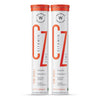
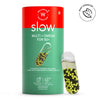
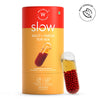
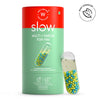
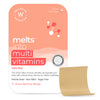
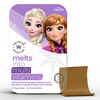
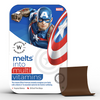




















 DOWNLOAD NOW
DOWNLOAD NOW
